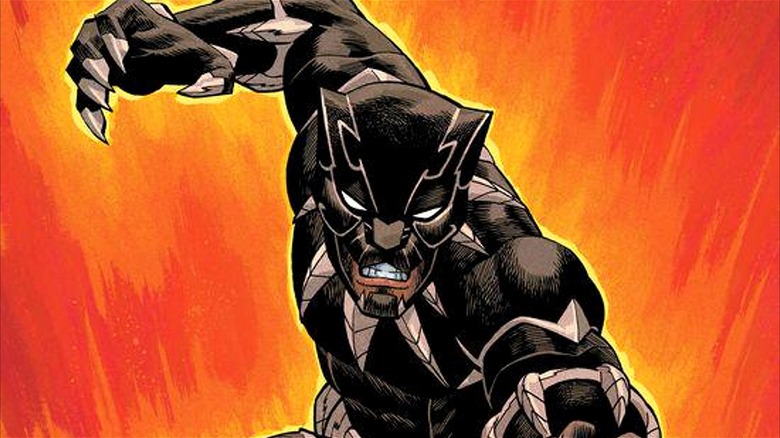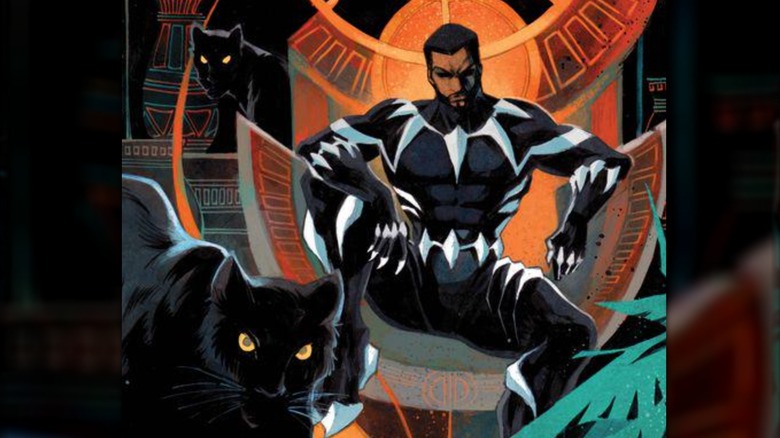Why Marvel's New Black Panther Is Like Dune (And Very Unlike Star Trek) - Exclusive
Contains spoilers for "Ultimate Black Panther" #1 by Bryan Edward Hill, Stefano Caselli, David Curiel, and VC's Cory Petit
"Ultimate Black Panther" is taking a page from "Dune" while taking the opposite mindset of "Star Trek" when it comes to storytelling.
In Looper's conversation with Bryan Edward Hill about "Ultimate Black Panther," the writer discussed getting to build T'Challa and Wakanda from the ground up and adding scope to the world. The comic brings in new elements to Black Panther's lore, like the mystical Vodu Khan — a decision which was inspired by Frank Herbert's epic science fiction novel, "Dune." "Ultimate Black Panther" certainly dives deep into Wakanda with the political conflict and different actors being revealed throughout the first issue.
Hill said he was eager to show off the depth of Wakanda and that he took a similar approach to Herbert in crafting the new Ultimate Universe version of Black Panther. "I wanted to take Wakanda and Black Panther into more of an epic territory," Hill told Looper in our long-ranging interview. "It's this unique thing in the Marvel Universe in the sense that it's an ancient culture in history, that in some ways is sort of siloed away from a lot of events, but it still has its own kind of rich depth and things to explore. And I've just always felt that Wakanda itself had layers that we hadn't really seen dramatized. So the ability to jump in there and do that, and give it more of a Frank Herbert 'Dune' almost approach in some ways, that interested me for sure."
How Ultimate Black Panther differs from Star Trek
In our conversation with Bryan Edward Hill, he talked about the political turmoil in Wakanda and how it differs from the philosophy of the original "Star Trek" series by Gene Roddenberry. Hill said he didn't want everyone to agree with each other, as seen in the early arguments between T'Challa and Shuri on handling potential threats building in Wakanda. Instead, he told us that disagreement drives the conflict.
"I think Gene Roddenberry's philosophy for Star Trek was that everyone in the Enterprise should get along and that all the conflicts should be external to the synergy of the people in the Enterprise," Hill told Looper. "And I kind of understand why he would make that approach back when he was making his approach. But for me, in the modern day, I think it's just less interesting for me artistically to have everyone agree on everything. And when you have brilliant people like Shuri and she's rendered here as largely responsible for the peak of era technology that Wakanda has, and someone who forges weapons with a close relationship with the Dora Milaje, I think part of them wants to see these weapons used."
It's easy to see why Hill and the creative team took a more "Dune" approach than "Star Trek." Despite being a united front in most portrayals, Wakanda still deals with inner conflict and drama. As much as T'Challa would like everyone to be on the same page, there's too much going on politically to make that happen. It is ultimately one of the biggest challenges of being a king.
"Ultimate Black Panther" #1 from Marvel Comics is available now.

